Why Your Brakes Squeak, Squeal, and Grind - And What to Do About It
When you press on the brakes, a lot happens behind the scenes to bring your vehicle to a stop. But when those brakes start to squeak, grind, or emit sharp odors even when you’re not braking, it could be a long list of issues, including worn-out brake pads. Don’t ignore those sounds or smells coming from your brakes. Stop by Les Schwab for a free visual brake inspection and answers to your brake questions, including how to pinpoint brake issues and what should be done to ensure your safety on the road.
Types of Brakes
There are two types of passenger vehicle brakes. They include disc and drum brakes. Check out our Brake Services FAQs as well as the Complete Guide to Disc and Drum Brakes for more information. In addition, your vehicle might also have an emergency brake and anti-lock brakes. Let’s take a look at each of these types of brakes.
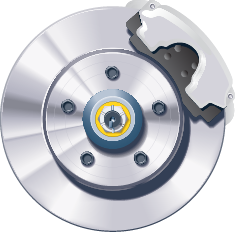
Disc Brakes: These are the most common type of brakes. Disc brakes use pads that press against a disc or rotor when you apply pressure to the brake pedal. Many of today’s vehicles are equipped with disc brakes on both the front and rear axles.
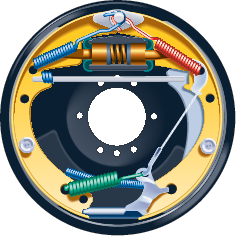
Drum Brakes: These brakes have a curved shoe to press against a hollow drum. While drum brakes were once located on all four wheels, they’re located on just the back wheels of some of today’s vehicles.
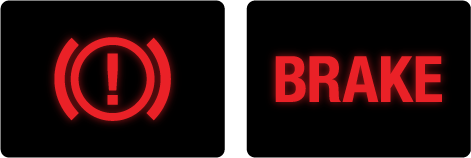
Emergency Brakes: Using an emergency brake (also called a parking brake) to stop your vehicle is not recommended but can be used to slow your car down in an emergency if your disc or drum brakes fail. The common use for emergency brakes is to keep your vehicle in place when parked. These brakes can be activated by a pull handle, foot pedal, or dashboard button.
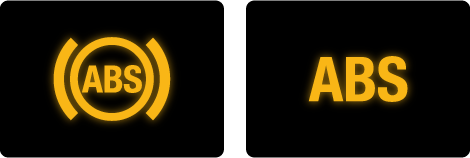
ABS (Anti-Lock Braking System): This is a system that prevents the wheels on many of today’s cars and trucks from locking up during braking. It’s an automated system that works in tandem with your brakes to offer more control when braking, including decreased stopping distance in many situations.
What Sounds and Smells Say About Your Brakes
New noises or smells coming from your brakes aren’t always a sign of a problem. It could just be a foreign object lodged in your brakes (a pebble or sand). However, that sound could be your brake-pad wear indicators, which require new brakes. Even with regular maintenance, the brakes on your vehicle may require a professional inspection and servicing when you hear new noises or notice a new smell.
Check out 8 Signs You Could Have Brake Problems and learn more about brake services at Les Schwab.
My Brakes Are Squeaking All the Time
There are a handful of reasons why your brakes might be squeaking, whether you have disc or drum brakes. The most common include:
Small Rocks, Dust or Sand Lodged in the Brakes
The Fix: Removing those bits of debris will have you driving squeak-free again.
Worn-Out Brake Pads Make Noise
The Fix: Found inside brake pads, the wear indicators are tabs of hardened steel that hit the rotor and cause a sound when the brake pads are low. If you hear this sound when not applying the brakes, you may need new brake pads.
Water on the Rotors
The Fix: The overnight condensation or other moisture that collects on the brake rotors can cause rust to form on your brakes over time. Keep your car in a garage to help eliminate this issue. If you must leave your vehicle outside each day, minor rust buildup is normal and should not be cause for concern.
Winter and Cold Weather
The Fix: There is likely nothing to fix. This issue is to be expected when you live in an area that sees a lot of snow or colder temperatures.
Overheating From Heavy Loads
The Fix: Excessive loads (towing or hauling) can cause the brakes to overheat even with normal braking. This can cause damage, which causes noise. Try to avoid overloading your vehicle. If you cannot lighten the load, allow your brakes to cool periodically until you can remove some weight.
Poor Installation or Craftsmanship
The Fix: Inferior parts or improperly installed brakes can lead to noises and other issues.
Improperly Lubricated, Sticking, or Seized Calipers
The Fix: This can cause noises when the brakes are being applied or not. Properly installed calipers and hardware can make a big difference.
Personal Braking Style
The Fix: The brakes on your vehicle are intended to work with normal, everyday use. However, if you are the type of driver who slams on the brakes often or hits the brakes hard at high speeds, you could experience increased brake pad wear, damage to the brake rotors, and possible leaks in the brake lines or hoses. All of these can affect braking effectiveness and reduce your overall driving safety.
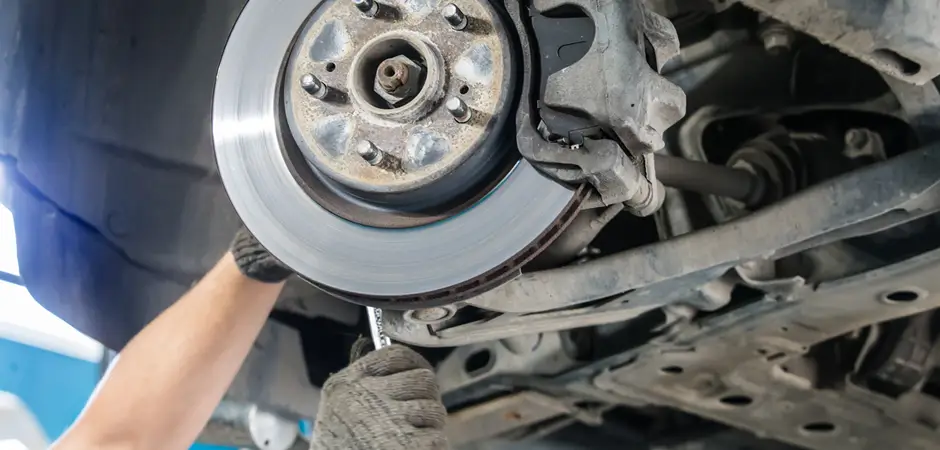
My Brakes Squeal Periodically but Stop When I Use the Brakes
If you’ve ever heard a squeaking sound from your wheels that went away when you apply the brake pedal, it could be your brake pad wear indicators. These indicators, installed by the brake manufacturer, are small tabs of hardened steel that hit the rotor and cause a squealing sound. They are only able to cause the sound when the brake pads wear down enough to expose the indicator.
The Fix: Get your brakes serviced. Ignore the warning, and the next step could be that your brake pads wear down to the point that they are aggressively grinding. This can reduce your stopping power and possibly ruin your rotors or other parts of your braking system, costing you more money.
My Brakes Are Grinding
These noises could indicate that your brake pads have absolutely no friction material left. This means the exposed metal where the brake pad once lived is now rubbing on the metal of the rotor.
The Fix: Get your brakes serviced immediately. Metal-to-metal friction can cause irreversible damage to additional parts of your vehicle’s braking system and limit your stopping power. Please note: many of today’s vehicles now have rear disc brakes, which can make the same noises.
The Back Brakes Are Squeaking
If you have drum brakes on the back wheels and hear squeaking when you press the brake pedal, the cause could be dust or other small bits of debris.
The Fix: Oftentimes, all it takes to tackle this problem is a good cleaning to remove the brake dust and add some well-placed lubrication. By keeping specific contact points on a drum brake system lubricated and adjusted properly, it can prolong the life of the brakes and reduce noises. Les Schwab has the experience to service your drum brakes. Schedule an appointment today.
There’s a Burning Smell Coming From My Brakes
A sharp, chemical odor could be a sign of overheated brakes or clutch.
The Fix: To avoid a fire or brake failure, pull over to a safe place and allow the brakes to cool. Double-check that the parking brake is off. If there’s any smoke coming from a wheel, your brake caliper may be stuck and not releasing even though you are not pressing on the brake pedal. In this case, it may be unsafe to continue driving without immediate repairs.
See Do I Really Need Brake Service for more reasons to get your brakes inspected — especially before you take a long trip.
Your Brakes Are an Important Safety Feature
Stop by Les Schwab for a free visual brake check. Our technicians are trained to keep your disc and drum brakes squeak-free and ready when you need them most. If there’s nothing wrong with your brakes or it’s a simple fix, we’ll often do it for free and send you on your way. If you need repairs or new brakes, we can show you all the options and take care of the installation.
What you need to know
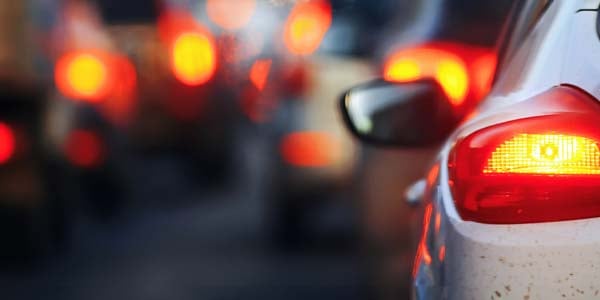
8 Signs You Could Have Brake Problems
The brakes on your vehicle are one of your most important safety features. Here are 8 signs to watch for and how to resolve brake problems.
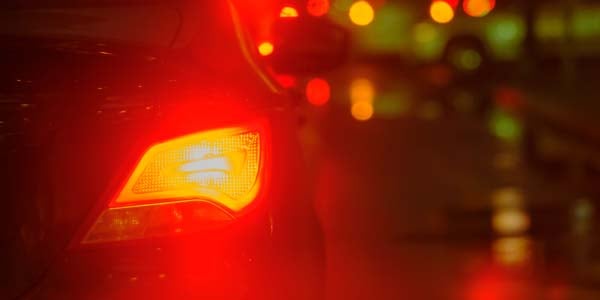
What Causes Brake Lock-Up
When brakes lock up, it can catch even the best driver off guard. Here’s what causes brake lock-up, how to stay safe, and what to do if it happens to you.
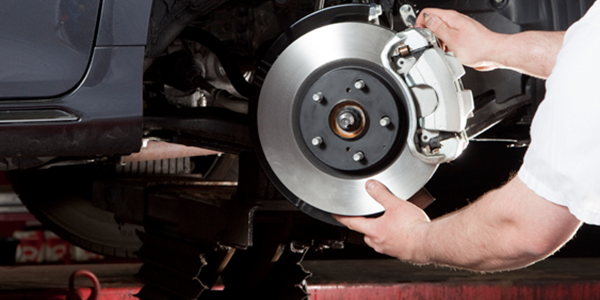
Why Are My New Brakes Squeaking?
New brake pads are likely to squeak and make other sounds due to a few different factors. Understand if the noises you are hearing are normal or problematic.

